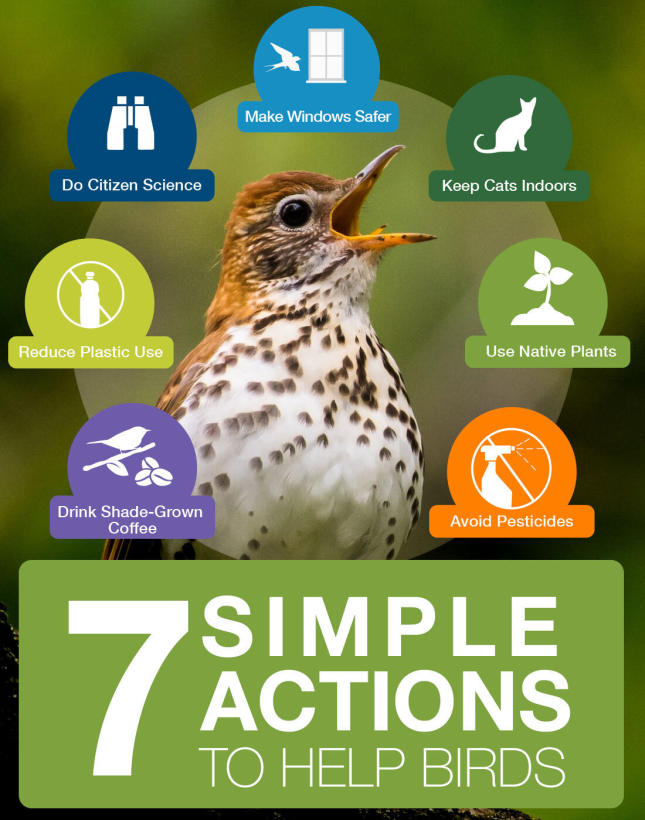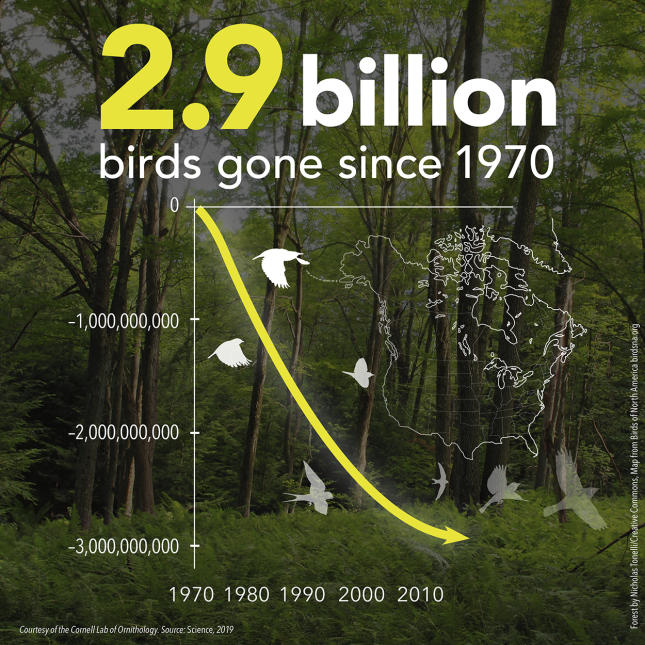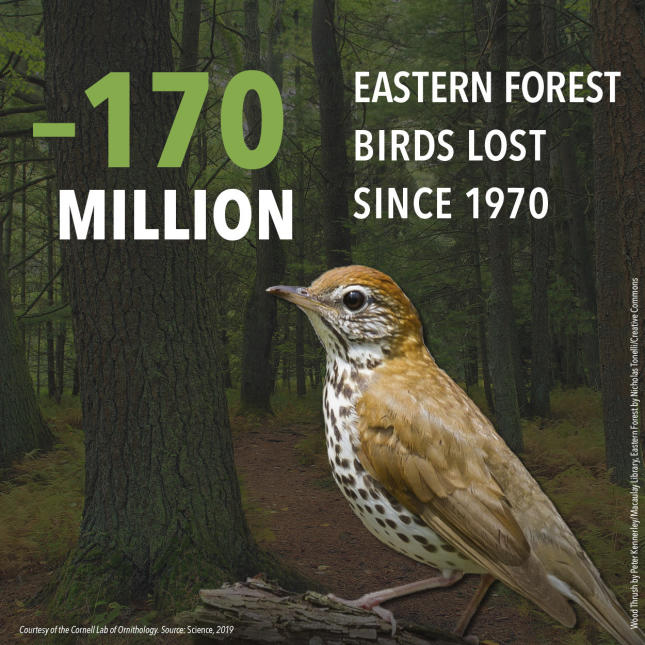2.9 Billions Birds Gone: You Can Help Save the Song Birds!
Be a Song Bird Hero!
Sometime it’s just hard…hard to feel like we can have a positive impact on this crazy world around us.
Feeling overwhelmed by the events of the past few years, many of us simply retreated to the comfort and serenity of our own backyards to regain a feeling of well-being and some semblance of control. It was all pretty simple, just put out some bird feeders and food and the result was the joy of having birds and nature enhance our world. A gift that kept on giving day after day!
Speaking of having a positive impact, why not consider giving a gift back to nature? It’s not hard, a few simple actions can truly help make the world a better place for birds, wildlife and people, too.
By now, we have probably all heard that bird populations in North America have declined by nearly 3 billion since the 1970s. Birds are in trouble from habitat loss, invasive species, climate change and pesticides. The good news is that when we create safe wildlife habitat in our own yards, and make our homes and lifestyles more bird-friendly, we can help many birds to recover and even thrive.
A study*, published September 2019 in the journal Science, found that the population of breeding birds in the US and Canada has dropped by nearly 30% (or 3 billion birds) since 1970.
While there are some discouraging findings about overall bird populations in the study, there are encouraging examples of how galvanized human effort can work to bring back our birds. Examples include Raptors (+200%), Waterfowl (+56%) and Woodpeckers (+18%).
Wild Birds Unlimited has a long history of providing educational information, products and services that directly support local and migratory songbird populations.
You can indeed make a difference - in your own backyard. Here are a few actions you can take to help #SaveTheSongBirds: 
- Make Windows Safer for Birds: The windows in our homes and offices can be hazardous for birds. Birds perceive reflections in glass as habitat they can fly through. They cannot readily distinguish the presence of a pane of transparent glass from an unobstructed space or passageway and often fly into window panes causing injury or death. Make your home’s windows safer by installing screens or using opaque window appliqués, markers, streamers or other commercially available methods to break up the reflections. Click here to learn how you can make windows safer for birds.
- Keep Cats Indoors: Save birds and keep cats healthy by keeping cats indoors. Cats are a danger to songbirds, and for that reason you should never allow your kitty outside with free access to birds and other wildlife. Cats are estimated to kill more than 2.4 billion birds annually in the U.S. This is the #1 human-caused reason for the loss of birds, aside from habitat loss. Go here to learn more.
- Reduce Your Lawn, Plant Native Plants: With more than 40 million acres of lawn in the U.S. alone, there’s a huge potential to support birds and other wildlife by replacing lawns with native plantings. Native plants will provide shelter and nesting areas for birds, along with food resources like nectar, seeds, berries, and insects.Scientists have identified habitat loss as the biggest reason for the decline in bird populations. Wild Birds Unlimited is proud to be the Champion for the National Wildlife Federation® Certified Wildlife Habitat program, whose goal is to inspire everyone to create a haven for wildlife in their yard. Learn how you can certify your yard and help #SaveTheSongBirds.
- Drink Bird-Friendly Coffee: You may not realize it, but the coffee you drink can have an impact on bird populations. Three-quarters of the world’s coffee farms grow their plants in the direct sun, after clearing the forests that birds and other wildlife need for food and shelter. In contrast, shade-grown coffee farms preserve the forest canopy which helps more than 42 species of North American migratory songbirds survive the winter, including orioles, warblers, and thrushes. Look for bird-friendly, shade-grown coffees and you'll be helping to preserve native forests birds depend on for survival.
- Watch Birds, Share What You See: The simple act of watching the birds in your own backyard can help. When we are more aware of the creatures around us, we care more and do more to protect them. Wild Birds Unlimited can help you enjoy the birds attract to feeders in your own backyard. We are also proud to create opportunities for bird watching in millions of backyards across North America through our sponsorship of the Great Backyard Bird Count and Project FeederWatch.
- Avoid Using Pesticides: The use of pesticides in your yard can harm birds both directly (through poisoning) and indirectly (by reducing their natural food supply). We encourage you to be mindful of this when maintaining your lawn. Additionally, our WBU seed blends do not contain fillers, which means a reduction in pesticide use across thousands of acres of crops. More than 1 billion pounds of pesticides are applied in the United States each year. Pesticides can harm birds directly through contact, or if they eat contaminated seeds or prey. Pesticides can also harm birds indirectly by reducing the number of insects that birds need to survive.
- Use Less Plastics: Plastic takes more than 400 years to degrade, and 91% of plastics created are not recycled. Studies show that whales, turtles and at least 80 seabird species ingest discarded plastic, mistaking it for food. Our WBU EcoTough and other recycled plastic products make use of plastics that would otherwise end up in landfills. Additionally, many WBU stores serve as collection centers for recycling plastic bags and conduct events which educate about the benefits of recycling. Reduce your use of plastics by avoiding single-use plastics including bags, bottles, wraps, and disposable utensils. If you do use disposable plastic, be sure to recycle it.
Indeed, seven simple actions that will have a positive impact in your life and make you a hero to the birds.
We encourage you to spread the word about how we can all help. Be sure to share this information and use the hashtag #SaveTheSongBirds.
*The study is a collaboration between avian and conservation scientists, led by Ken Rosenberg from the Cornell Lab of Ornithology and American Bird Conservancy.



